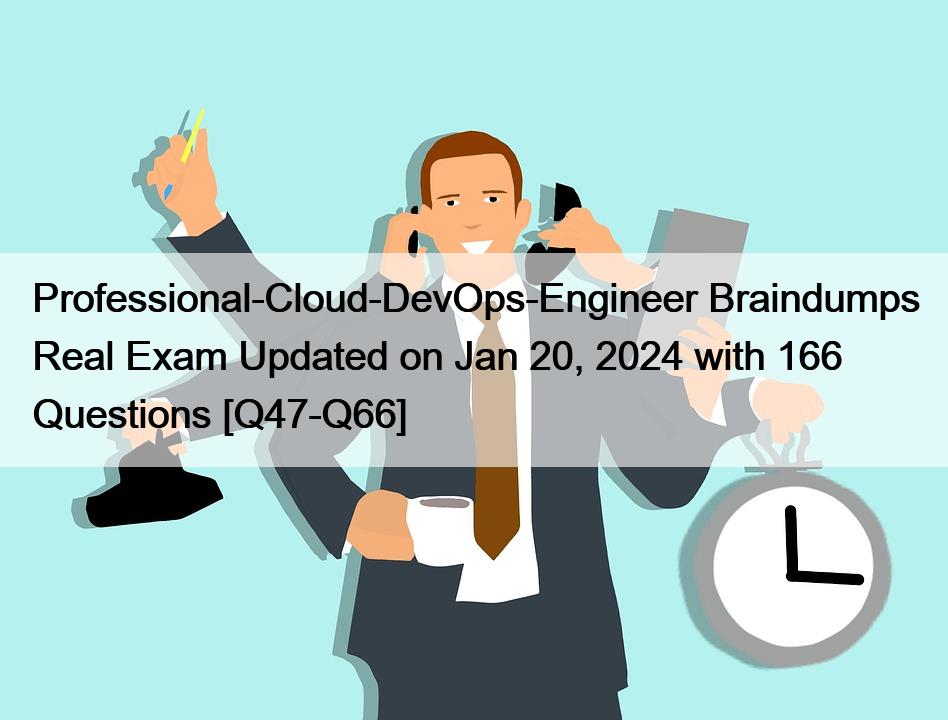Professional-Cloud-DevOps-Engineer Braindumps Real Exam Updated on Jan 20, 2024 with 166 Questions [Q47-Q66]

Professional-Cloud-DevOps-Engineer Braindumps Real Exam Updated on Jan 20, 2024 with 166 Questions
Latest Professional-Cloud-DevOps-Engineer PDF Dumps & Real Tests Free Updated Today
To prepare for the exam, candidates are advised to take relevant training courses, read the official study guide, and practice using the Google Cloud Platform. They should also have hands-on experience working with DevOps tools and technologies, such as Docker, Kubernetes, Jenkins, and Terraform. With the right preparation, candidates can pass the Google Professional-Cloud-DevOps-Engineer exam and join the elite group of Cloud DevOps experts who are in high demand in the IT industry.
Google Professional-Cloud-DevOps-Engineer is a certification exam offered by Google Cloud that tests the skills and knowledge of professionals in the field of cloud-based DevOps. Google Cloud Certified – Professional Cloud DevOps Engineer Exam certification demonstrates a candidate’s ability to design, implement, and manage DevOps practices on the Google Cloud platform. It requires a solid understanding of software development, deployment, and cloud infrastructure management.
Professional-Cloud-DevOps-Engineer Dumps With 100% Verified Q&As – Pass Guarantee or Full Refund: https://www.vceprep.com/Professional-Cloud-DevOps-Engineer-latest-vce-prep.html





